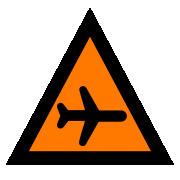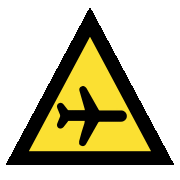Every year there are a number of emergencies in people’s homes, workplaces, community and in our bushland.
Knowing what to do during an emergency can save the lives of you, your family and your friends.
If you see an emergency, report it. Never assume others will report an emergency.
You can find out if there is a fire, flood, storm or other emergency in your area by visiting the VicEmergency website or by calling VicEmergency on 1800 226 226 and speak with a staff member between 8am and 6pm. The VicEmergency website allows you to key in your postcode so you can receive an automated message.
Automated messages are available from your smart phone through the VicEmergency app which will allow you to receive emergency warning messages from Whitehorse City Council.
During large emergencies you may receive:
- A message on the VicEmergency App
- An SMS Emergency Alert message to your mobile phone
- A voice message on other telephones
- A community alert such as a local siren (only in some rural areas)
Warnings are issued when an emergency is likely to impact you. They will tell you how bad the emergency is, or how bad it could be so you can prepare yourself and your family.
The warning system provides you with as much information as possible to help you make good decisions to protect yourself and your family.
What to do if you hear a warning
It is important that you
- Stay calm. Stop what you are doing and pay attention.
- If you don’t understand the warning, get someone to explain by asking neighbours or friends.
- Follow the advice of warnings immediately. People die or are put in danger because they don’t act right away.
- Keep in contact with family members. Make sure they know what is happening and what you plan to do.
- Stay informed. Keep listening for more information in case the situation changes.
Warning levels
There are different levels of warnings. The warning level is based on the severity, conditions and the likelihood that the emergency could impact on the community, so the first warning issued could be an Emergency Warning – the highest level.
Emergency Warning Symbol |
What the Emergency Warning Symbol Means |
 |
EMERGENCY WARNING
|
 |
WARNING (WATCH AND ACT)
|
 |
ADVICE
|
|
PREPARE TO EVACUATE / EVACUATE NOW
|
|
|
COMMUNITY INFORMATION
|
Language |
Emergency Warning System Information |
|
| English | EMV | Understanding warnings |
| VICSES | Warnings | |
| CFA | Warnings and restrictions | |
| Easy English | CFA | Warnings and restrictions |
|
Simplified Chinese 简体中文 |
CFA | Fire Danger Ratings |
| Other Languages | CFA | Warnings and restrictions |
When an emergency happens:
- Check for injuries (attend to your own injuries first so you can help others)
- Seek medical assistance then apply basic first aid until professional medical assistance arrives
- Do not wait for emergency workers to knock on your door – seek out information from reliable sources
- Ensure your family and neighbours are safe, especially the elderly and those with disability or who may not understand English well
- Phone your out-of-town contact but keep the conversation short to free up the lines for others
- Check for damage to your home (i.e. fires, gas leaks) and shut off electricity, gas and water if necessary. In darkness, use a torch to find them - DO NOT light matches or candles or turn on electrical switches
- You may be advised to stay in your house or evacuate, in either case, follow the advice given by emergency services as it will be tailored to the circumstances. Cooperate fully with the emergency services and authorities involved in responding to the emergency
- Activate your household’s emergency plan. Check the Fire or Flood Danger Rating for your location every day. When it reaches your trigger point, you need to activate your plan. Be decisive - if your plan is to leave, then leave early
- Should evacuation be advised, follow your emergency plan and take your emergency kit and use travel routes specified by the authorities to the designated assembly or relief areas
- Consider registering with the Red Cross National Registration and Inquiry System – it can help people to reconnect with family and friends, during and after emergencies.
- If you can’t get back to your home or need help with food or other requirements listen or watch the news to find out where council Emergency Relief Centres are located.
- If you are not affected, stay home. Leave the roads clear for emergency vehicles
More information is available from:
- Emergency services staff at the scene
- Media broadcasters such as ABC 774AM (use battery powered radios where possible to avoid electricity use) or television. A list of emergency broadcasters in Victoria is available from Emergency Management Victoria. Note: A Standard Emergency Warning signal may be used to precede official information from the Incident controller. The information will include instructions on what is happening and what you should do. The warning signal does NOT mean to evacuate
- Telephone, through emergency alerts from call centres set up to advise people about the specific event:
- For bushfire information call the Victorian Bushfire Information Line on 1800 240 667. If you have a hearing or speech impairment, contact the VBIL on 1800 555 677. For information in languages other than English, call 131 450 for translations from VBIL.
- For flood and storm information call the VIC SES Information Line on 1300 842 737
Social Media and Websites
- Emergency Alert Telephone Warnings by telephone for life-threatening emergencies. Emergency Alert is a telephone warning system that emergency services can use to send alerts to communities via landline telephones based on the location of the handset, and to mobile phones based on the billing address. In an emergency, you may receive a voice message on your landline telephone or a text message on your mobile phone. You should not rely solely on receiving a telephone warning.
- Vic Emergency website. VicEmergency is the primary website for fire and flood warnings and shows emergency incidents in Victoria on a Google map
- VicEmergency Facebook page
- VicEmergency Twitter feed
- VicEmergency app on a smart phone
Note: DO NOT phone 000 for information; the operator will not be able to provide it.
Police will attempt to notify members of the community who don't speak English through interpreters and local radio stations, however residents should take some responsibility for looking after neighbours who may be elderly, sick or who do not speak English well.
Emergency Services may tell you to evacuate or leave your home when there is danger to your home. It is important that you follow the instructions as it will keep you and your family safe.
Depending on the emergency you may not be able to return home for some days. You should follow your emergency plan.
Language |
Evacuation Information |
|
| English | Victoria Police | Community Evacuation |
|
Simplified Chinese 简体中文 |
Victoria Police | Community Evacuation |
| Other Languages | Victoria Police | Community Evacuation |






